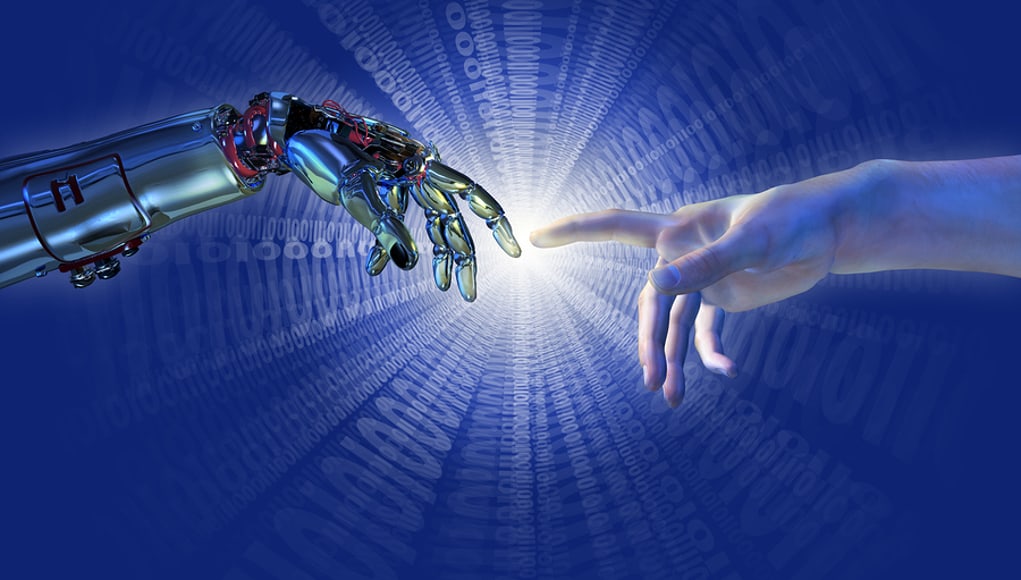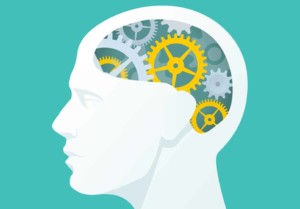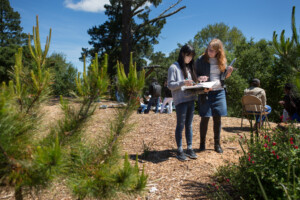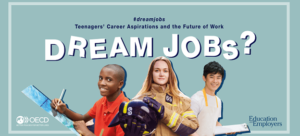The Increasing Role of Artificial Intelligence in Our Lives

Artificial intelligence is being used in so many facets of our everyday lives. Three years ago when I first started to learn more about artificial intelligence, I was surprised at how much we interact with it on a daily basis and most of the time, may not even realize it. Over the past few months, there has been an increase in information about how AI is being used in various fields and the innovative ways that people are developing new technologies with it. Artificial Intelligence has been an area identified as one of the top five areas of IT in demand as a result of COVID-19. There has also been a huge increase in the number of online courses available to learn more about AI and develop the skills needed to fill some of the nearly 58 million projected jobs that will be available by 2024.
All of this recent information has made me even more curious about the role artificial intelligence will play over the next few months as we hopefully get back to more of a normal life experience and can engage in work and learning but also in leisure activities. What can we learn from the recent uptick in AI information and how can it help us in the future?
Recent AI Accomplishments
I was updating my resources for a presentation on AI, and I was amazed at how much more we are seeing AI being used in the world and the ways in which it is being used. While there are concerns to be mindful of when it comes to AI, especially in regard to privacy and ethics, there are also tremendous possibilities to learn from and share with students. What can we learn from studying how AI is used to create content such as poems, music, paintings, or even stories for the news? Some of the interesting uses of AI are:
Books. AI has written a new series of five chapters after sorting through the novels that Game of Thrones was based on. What can this capability mean for our students? It could be interesting to see what AI would create if it took sample writing from a group of students and generated a new story. Can AI help writers to overcome writer’s block? If so, what are the legal ramifications/copyright issues involved in something like this that has been generated by AI?
Business & Legal. Marcy Smorey, a Pittsburgh attorney, has been using AI to help students understand more about signing rental leases. Clover Contracts uses machine learning to automatically analyze and provide information on whether an agreement should be signed or not. This capability leads to more efficient processing of business and legal documents, however there is still the need for human interactions and conversations. Other possibilities are synthesizing all of the data, looking for errors, and saving time in what can be a lengthy process. Recently, Microsoft began using more AI to process data or even, in some cases, as replacements for journalists. Chatbots are now being used to replace call center workers.
Medicine. AI has been used to detect lung cancer, to track the Coronavirus, and recently, for online vision tests. Students at Duke are working on a machine learning system that will help doctors diagnose COVID-19 faster by analyzing CT scans rather than relying on the swab test being used now. The benefits of AI are that we can provide medical treatment faster and make it more accessible through online technologies.
Song Writing. AI has been used to create a song that was written similar to the style of the band AC/DC. The song was created by a chatbot using lyrics of AC/DC songs. The AI analyzed the most frequent words from the songs and then wrote its own lyrics.
Visual Arts. AI can be used for creating works of art. By showing it different styles or genres of art, the AI can then create its own painting. A portrait was recently created that then sold for $432,599 at a Christie’s auction. How can we use this in education? The potential could be for students to program AI to include additional data sets that would then enable AI to generate a work of art reflective of a specific painter or time period, but with content related to the current time or state of the world.
These are just a few of the ways that AI has been in the news lately that lead us to think about our needs in the future and what we can do as educators to prepare our students. With AI in education, it means being able to provide more personalized learning opportunities for students and educators through intelligent tutoring systems and adaptive assessments and platforms. What could this mean for these and other industries, who have clearly been impacted by the pandemic and the resulting shutdowns of businesses and services provided? If social distancing and limits placed must continue for an extended period of time, will society become increasingly dependent on AI to perform jobs and tasks previously done by humans, as a way to flatten the curve? If so, are we prepared to develop the AI and fill those jobs that will result? And as an educator, if there are shortages in school district funding and even teachers, will the potential use of AI increase to provide students with continued opportunities to learn? Could teachers temporarily be replaced because of this?
It makes for an interesting conversation. We can embrace the technology to help but we still need the human connection to make sure that students develop SEL skills and so we are mindful of bias, privacy, and equity when it comes to AI.
There is a huge deficit in the number of people needed to design and maintain the technologies that we will need in the future. It comes as no surprise that there has been a spike in the number of courses available and people enrolling in courses to learn more about machine learning and artificial intelligence. Universities are offering AI degrees and the first AI university is set to open in Abu Dhabi in January 2021. Recent articles have highlighted the need for more women to enter the AI field, and a group of women researchers at CMU are leading efforts in AI research. Because of these trends and predictions for the future, we should explore options to help students understand these technologies and their potential at an earlier age.
How can we help students to learn more?
We provide opportunities for students in our schools and also connect them with global possibilities for learning and challenging themselves based on personal interests. By providing options such as PBL or genius hour, we can create more opportunities for students to become the creators of their own AI.
Sixth grade students in San Jose created the Calmzilla app, which is aimed at helping students manage stress. The girls trained their AI by using survey results from classmates and analyzed the data to determine which responses indicated stress. They entered the Technovation Families AI Challenge and took first place with their app. Looking at their experiences and finding solutions to problems and challenges faced by their peers was the inspiration behind the app design.
Montour School District in Pittsburgh has a middle school AI curriculum where students learn about AI, work with and program Cozmo the robot, interact with an autonomous robot that delivers packages, and explore their own interests in the AI curriculum.
Explore some of the resources available that students can access regardless of where they are learning. A few to check out:
- Create-Learn offers online courses to students in grades K through 9.
- Ready AI is offering a virtual AI summer camp for grades K through 12, and also provides workbooks, resources, and other training for students and educators.
- Constellations Virtual Computer Science Summit is offering professional development on a variety of topics related to computer science and AI from June 15-17.
- Living with AI is a summit designed to explore the impact of AI in various areas including criminal justice, education, healthcare, and the workforce.
For more, see:
- How to Teach Artificial Intelligence
- Pandemic Spike in AI Learning–and What it Means for Schools
- Artificial Intelligence: Preparing Students for the Future with AI
Stay in-the-know with innovations in learning by signing up for the weekly Smart Update.








Judith Presley
This is a very perspective direction, which is rarely seen in educational programs of schools. Probably because it is not yet sufficiently studied as it is actively developing. But I was glad to find out that there have been successful attempts to teach artificial intelligence development. I also like robotics lessons as a new experience.
And sometimes I represent the educational process of the future and understand that it will be fundamentally different from what has been developed in the last 40-50 years.